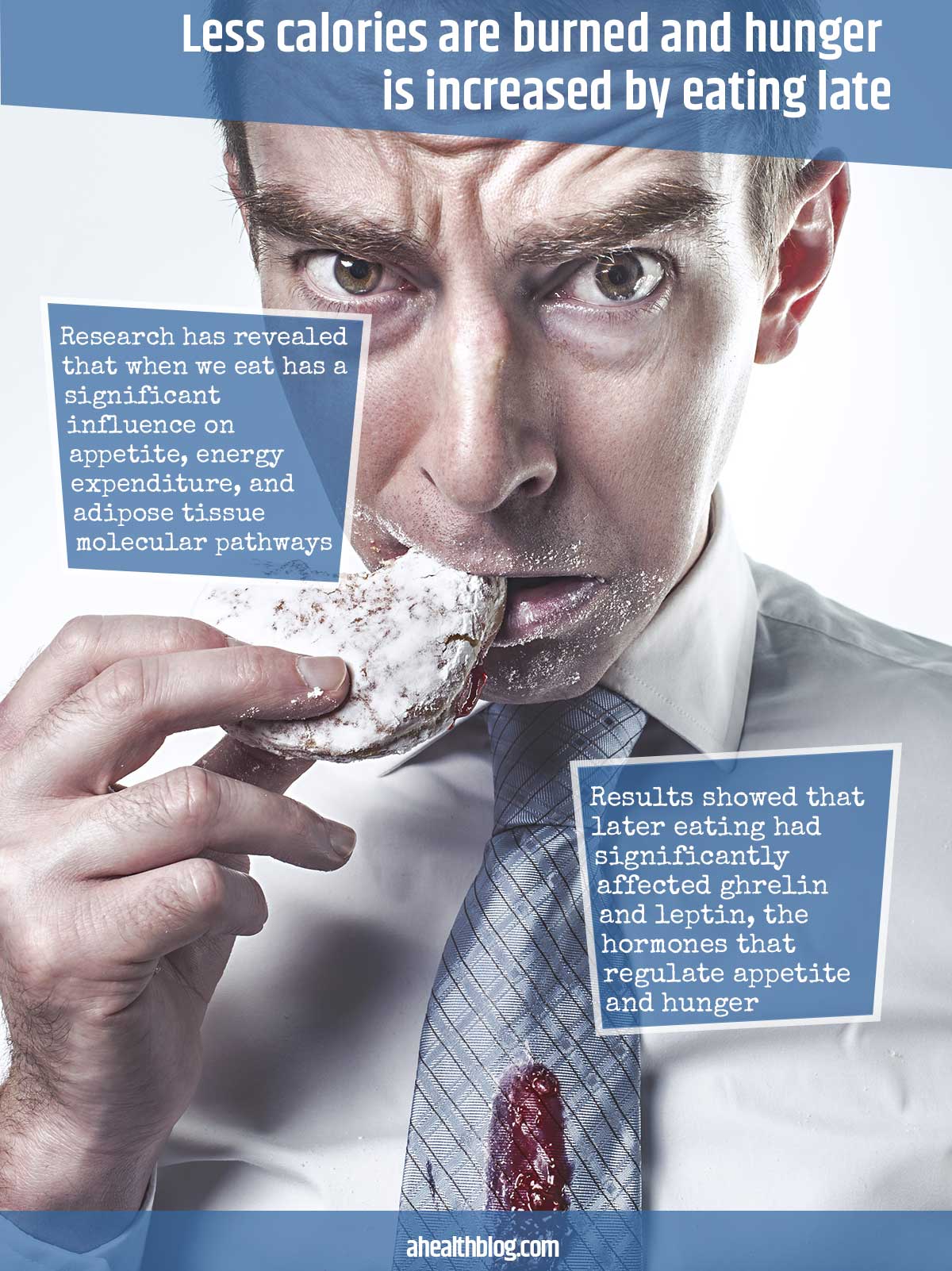A analyze has unveiled that when we try to eat has a sizeable affect on urge for food, vitality expenditure, and adipose tissue molecular pathways.
The scientists wished to take a look at the mechanisms that could make clear why the danger of weight problems raises by ingesting late. Prior scientific tests have shown that consuming late is connected to an enhance in body fats, amplified danger of being overweight, and body weight decline impairment.
The researchers identified that ingesting 4 several hours afterwards can make a substantial variance to the way excess fat is saved, hunger degrees, and the way calories are burnt soon after taking in.
The researchers researched 16 individuals with a BMI in the overweight or chubby vary. Each individual participated in 2 laboratory protocols: 1 with a rigid early food program, and another scheduled around 4 hrs later in the working day, every with identical foods.
Snooze and wake schedules were set In the previous 2 to 3 weeks just before setting up just about every of the protocols, and they strictly adhered to the exact food schedules and meal plans at house in the last 3 days prior to going into the laboratory. The folks routinely recorded their appetite and starvation In the laboratory, giving common modest blood samples all through the day, and energy expenditure and human body temperature was calculated.
To evaluate how the time of ingesting influenced how the physique outlets body fat, or molecular pathways associated with adipogenesis, adipose tissue biopsies were collected from a subset of folks all through laboratory tests in the early as nicely as late feeding on protocols, producing it probable to evaluate gene expression stages/styles concerning these 2 taking in protocols.
Outcomes confirmed that afterwards having had significantly influenced ghrelin and leptin, the hormones that control urge for food and hunger. Stages of the satiety-signaling leptin hormone were being particularly decreased over the 24 hours in the having late protocol in comparison to the early eating protocols.
When individuals ate afterwards, calories had been also burned at a slower amount and adipose tissue gene expression was exhibited toward lowered lipolysis and enhanced adipogenesis, which promotes extra fat progress. These outcomes advise converging molecular and physiological mechanisms fundamental the relationship between ingesting late and the amplified risk of being overweight.
These benefits aren’t only in line with a substantial entire body of study indicating that feeding on later can enhance the probability of acquiring being overweight, but they make clear how this can acquire location. By earning use of a randomized crossover analyze, and tightly managing for environmental and behavioral aspects which include light exposure, slumber, posture, and physical exercise, the scientists had been capable to detect improvements in the diverse handle systems involved with vitality equilibrium, a marker of how our bodies make use of the food we try to eat.

Want to use our images on your website? Suitable click on impression for embed code





